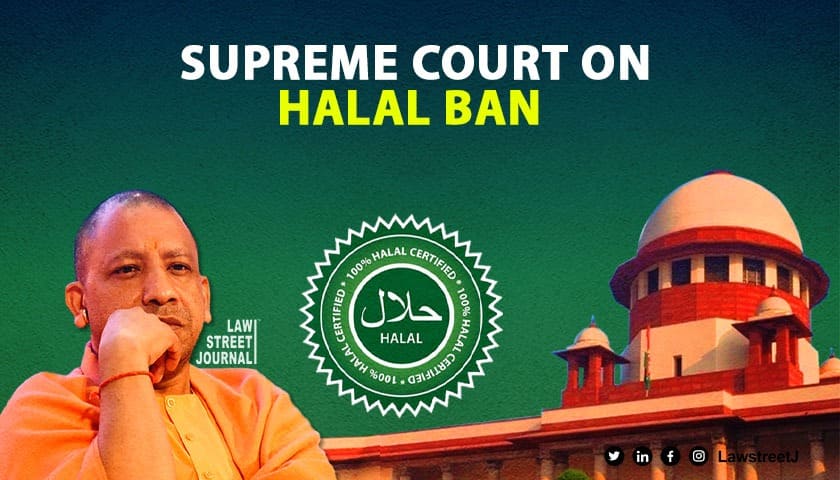NEW DELHI: The Supreme Court on Friday issued notice to the Uttar Pradesh government on a plea challenging validity of the November 18 decision to ban 'Halal' certified products and launch criminal proceedings.
A bench of Justices B R Gavai and Sandeep Mehta sought a response from the state government on writ petitions filed by Halal India Pvt Ltd and Jamiat Ulama E Maharashtra and others.
At the outset, the court questioned the petitioners as to why it should entertain the petitions filed under Article 32 of the Constitution.
The petitioners, on their part, contended the matter was having Pan India ramifications and related to inter state trade and commerce.
They said the various other state governments started prosecution on the basis of complaints being filed by the political party members.
Senior advocate Raju Ramachandran, appearing for the petitioners, submitted the ban has got national ramifications affecting religious community.
The petitioners said the Commerce Ministry's body has authorised grant of accreditation.
They also sought a direction for no coercive action in FIRs lodged by the state police.
The court, however, said it would consider such a plea on the next date.
The petitioners contended the notification banning Halal certified products is violative of Articles 14, 19(1)(g), 21, 25, 26 and 29 of the Constitution of India.
They sought a declaration that identification and consumption of Halal products is a protected activity for Muslims being part of their religious and personal laws under Article 26 and 29 of the Constitution.
"The notification is arbitrary and based on unreasonable classification," their plea said.
The petitioners claimed the notification disincentivised the
food preference of one particular religion without any rational basis and is therefore contrary to the secular fabric of the nation.
The Commissioner, Food Safety and Drug Administration, Uttar Pradesh lodged an FIR at Police Station Hazratganj Lucknow on November 17, 2023 under Sections 120-B, 153-A, 298, 384, 420, 467, 468, 471 and 505 of the Indian Penal Code, 1860 against Jamiat Ulama E Maharashtra, a few other companies, and a few unknown entities on the ground of 'public health'.
It was alleged that the petitioners were trying to bring communal differences among the consumers as the certification of products is not limited to edibles but also products such as soap, oil, facial creams, toothpastes etc by which the accused persons intended to hurt the religious sentiments of the citizens in the country and cause unrest between the masses while also disrupting the market of these products by promoting the use of only halal certified products to a particular religion.
It was alleged that the accused were holding enquiries and taking disciplinary actions against the manufacturing companies which do not agree to get certified by such agencies.
On November 18, 2023, the state government banned manufacture, sale, storage and distribution of Halal-certified products with immediate effect.
The petitioners said halal certification does not make any false, misleading or deceptive claims, it is merely a certification referring to food/other products which have been procured, processed, and traded in compliance with Islamic belief.
"It is similarly to the kashrut dietary rules followed by orthodox Jews, who only consume food that is kosher, i.e., permitted in Jewish law. Thus, a certification by itself cannot be termed as misleading or deceptive and that is an allegation that has to be tested on facts of each case, merely because halal certifications are allegedly
likely to be deceptive, a blanket ban on such certifications cannot be enforced. It is relevant to note that the halal certification on the other hand prevents misbranding of food, particularly those products which are labelled as vegetarian but contain animal derived ingredients," the plea said.
"India covers 9% of the global market and in Halal meat alone, India consists of $2.28 Billion making India the third largest exports of Halal Meat throughout the World as per euromeatnews, Halal Products in the export market is a huge source of revenue for the government of India while if the ban as in the state of UP is followed by other states then it would eventually result in reduction of our share in the global export market since India is home to 10.9% of the worlds Muslim population and if India cannot cater to the domestic consumers, it may have an impact on the economy of India in the long run," the plea added.
















